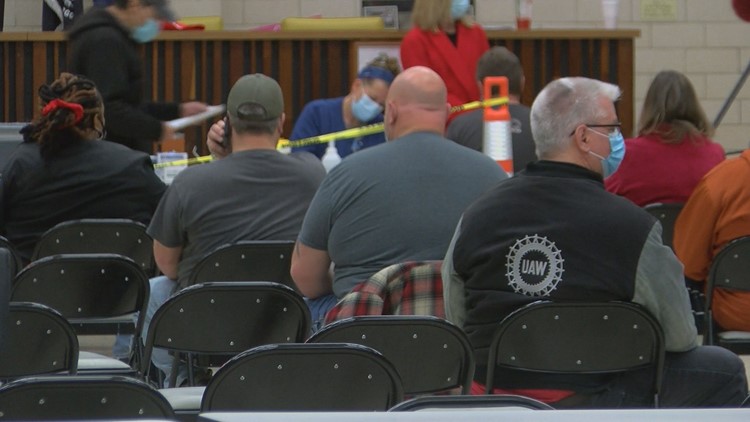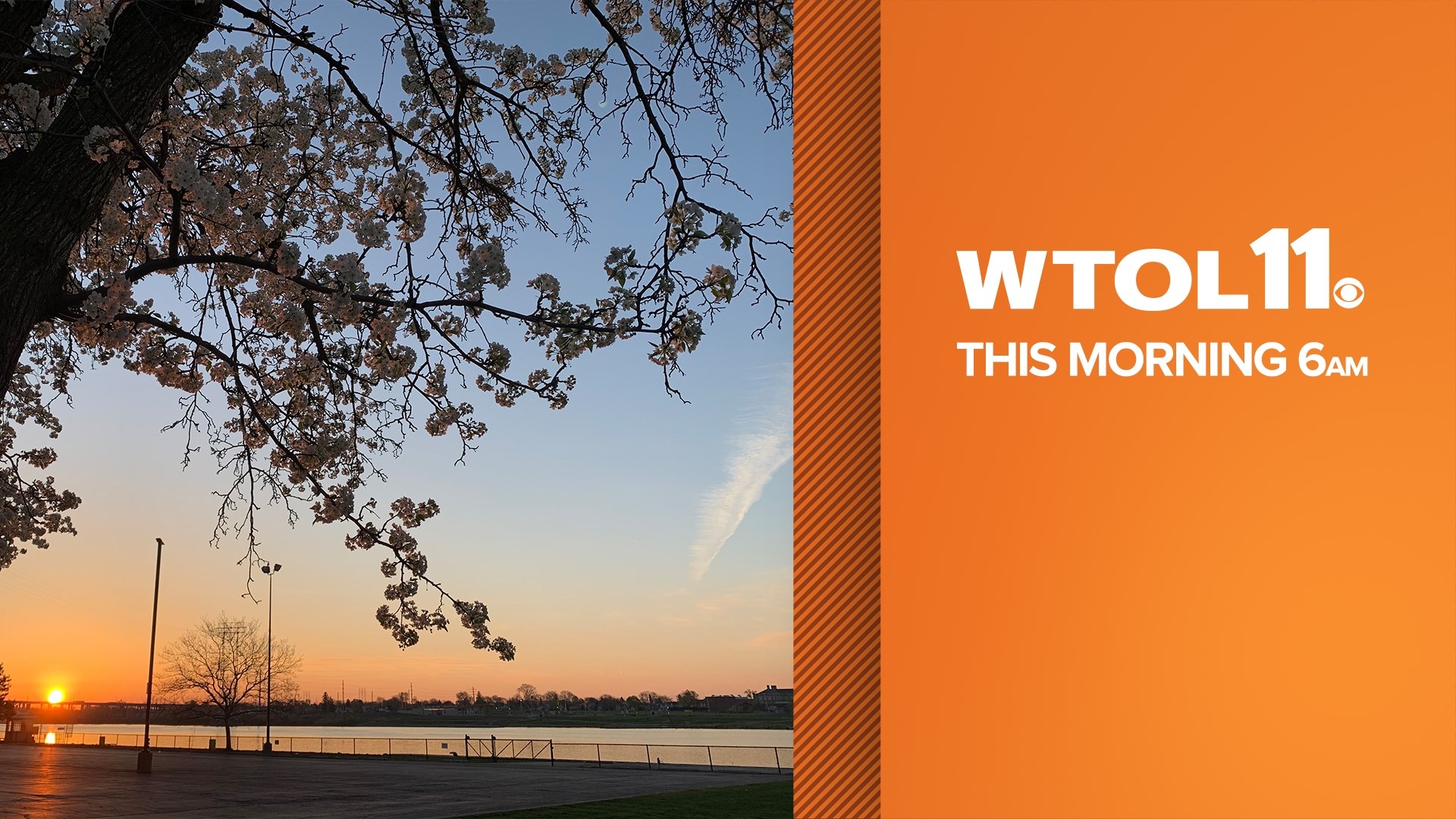OHIO, USA — Northwest Ohio has seen more and more people able to get vaccinated to protect against COVID-19. Recently, UAW Local 12 teamed up with Mercy Health to give nearly 700 autoworkers, along with family and friends, their first shot of the Pfizer vaccine.
Those private clinics, ones not open to everyone in the public, are now on pause in Ohio. Gov. Mike DeWine's office has asked for the vaccination events that are open to only a select group to stop until his office can provide further guidelines.
"We have not asked anyone to cancel announced events, but we are asking COVID-19 vaccine providers to continue public clinics and not schedule further closed-pods until we issue guidance is the very near future," explains Dan Tierney, Press Secretary for the Office of Ohio Governor Mike DeWine.
But Matt Sapara, vice president of regional development and operations at Mercy Health, says the workplace clinics are an effective way bring the vaccine to the people.
"Mercy has taken the position where we want to be the easy button for this," Sapara says. "We want to make it barrier free, we want to get as many people vaccinated as possible so we can get back to our normal lives."
The move means health systems like Mercy Health will no longer be able to schedule new clinics that open only to select groups. Instead, DeWine's office is asking for anyone who is eligible and wants the vaccine to go through public channels, like their local health department.
Sapara calls the recent clinic at the UAW hall a success, saying events like this make it convenient for employees or members of a specific community to get their shots. He says it helps prevent congestion at mass vaccination sites, like the Lucas County Rec Center.
He also explains a higher percentage of people offered the vaccine in a comfortable and convenient locations signed up for an appointment than in the general public, including a higher percentage of minority populations.
"By opening up to employers, we're really having a much more positive impact on our minority community," says Sapara.
He noted that around 20% of the people vaccinated at the UAW closed-pod clinic were of a minority status, offering that number is close to four or five percent at a general, public pod.
DeWine's office says the state is not aiming to shut down these private clinics, instead looking to provide specific guidance.
"Every Ohioan deserves the opportunity to sign up for a COVID-19 vaccine at a clinic near them as Ohio opens vaccinations to all Ohioans 16 and older on Monday," writes Tierney.
The governor's spokesperson notes that guidance will be coming soon but did not provide a specific timeframe.
Meantime, Sapara says there is demand for these closed-pod vaccination events.
"We've had dozens of companies reach out and say, 'Wow we saw what you did with the UAW, can you do that here?' And the answer is yes."
And, he explains, Mercy Health has plans to continue offering them, as soon as the governor's office unveils its plan.
"Once the guidance comes out, we'll start organizing those again. I don't have a timeframe on when that is, but we'll get the ones next week done. I'm very confident we'll see the same results with those pods."
WTOL 11 also asked Sapara about the individuals who received their first dose of the Pfizer vaccine. Both the Pfizer and Moderna versions require a second dose weeks after the initial shot. He says the state's decision to end the closed-pod clinics does not impact that second dose and anyone who receives their first shot will be scheduled for their second.



